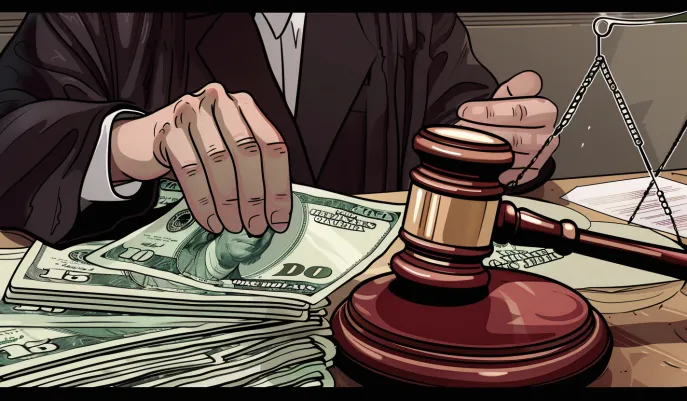Controversy between legally exempt creditors of Sullivan & Cromwell Sparks
Bankrupt cryptocurrency exchange FTX has introduced new amendments to its creditor repayment proposal that include a controversial exemption clause. If approved, this provision would release bankruptcy law firm Sullivan & Cromwell (S&C), along with all debtors, from future liability arising from its conduct during the bankruptcy proceedings.
Details of Exemption Clauses
The amendment announced on May 7 aimed to secure billions in compensation to creditors, but it included an exemption clause, causing dissatisfaction. This legal provision seeks to protect certain parties from liability for damages resulting from bankruptcy enforcement. According to Sunil, a prominent creditor of FTX and member of the FTX Customer Special Committee, the provisions appear to be designed to protect S&C from potential liabilities, such as alleged discount sales of FTX assets to customers and insiders, and its decision to oppose the FTX 2.0 restart. .
Creditor opposition and legal background
The provisions come nearly three months after FTX’s top creditors filed a lawsuit against Sullivan & Cromwell, accusing the company of complicity in FTX’s alleged multibillion-dollar fraud. Creditors argued that S&C knew of the fraudulent activity and was able to financially benefit from it, thereby implying that the company supported FTX’s illegal conduct for its own benefit.
Financial Impact and Creditor Response
The proposal has sparked outrage among the cryptocurrency investment community, especially because of the implications of the exemption provisions that could lead some creditors to vote against the plan. Under the plan, more than 98% of creditors would receive an 11% dividend, with additional compensation expected to run into billions of dollars. However, the compensation is based on a Bitcoin price of $16,800, which many creditors find unacceptable considering Bitcoin’s significant rise since the FTX collapse.
0% of FTX creditors agree that they will be fully compensated if they receive $16800 in Bitcoin.
I understand why the bankruptcy process has to proceed this way. But let’s not pretend that victims got their money back or that FTX wasn’t as horrible as it used to be. https://t.co/odVp4rT7hP
— Mike Belshe (@mikebelshe) May 8, 2024
Statement from an industry leader
BitGo CEO Mike Belshe expressed frustration in a post that FTX creditors would not find adequate compensation because the proposed Bitcoin price does not reflect the current market value. While he acknowledged the procedural necessity of bankruptcy proceedings, he criticized the notion that creditors would be fully compensated and that the aftermath of FTX was not disastrous.

